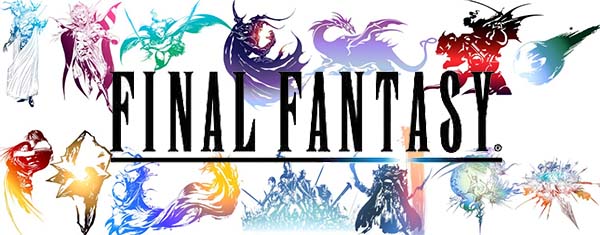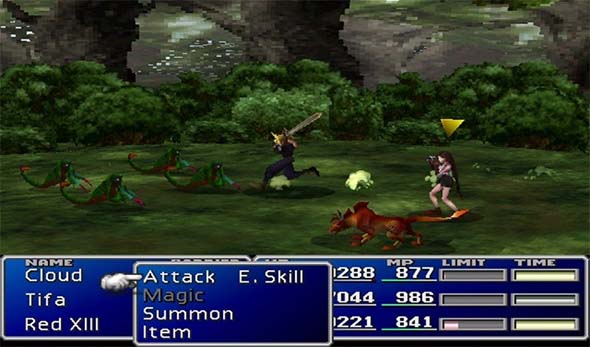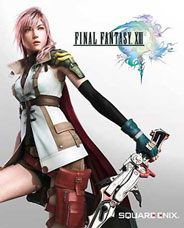
Despite being great games, the character development systems of many Final Fantasy games have really weird qualities that put them at odds with the games' narratives. One of the things that separates games from other media such as books or movies is that games are interactive experiences. The best games typically have gameplay that informs story and / or a story that informs the gameplay. This is especially true of RPGs, which are generally designed entirely around their stories and characters.
While the combat and character development systems of most Final Fantasy games do have a basis in the game's narrative, some of the Final Fantasy games have gameplay systems that actually pull the player out of the story and create strong disconnects between the gameplay and the narrative.
Yet, we still love these games. That is either a testament to the overall quality of the games, or to the general gullibility of gamers.
Perhaps the two most popular Final Fantasy games are the worst offenders in terms of having gameplay mechanics that aren't well integrated into the narrative.
Final Fantasy VII is widely regarded as best game of the series, and it frequently appears on lists of "the Best Games Ever". Its story, characters, and locations have become iconic. And its primary character-development mechanic, materia, is generally well-received by fans and critics. The materia itself is even a functional object in the game world and an integral part of the plot, instead of just an abstract game mechanic.

All skills and abilities (except Limit Breaks) are granted by equipping materia,
making all character functionally almost identical.
However, this materia system does have one significant drawback: It severely limits the role of the characters in the actual gameplay.
From a gameplay perspective, the characters of Final Fantasy VII are mostly blank slates. The only mechanics that are unique to characters is their weapon classes and unique limit breaks. The weapons are mostly cosmetic, since the combat mechanics don't differentiate them much. There are slight variations in the number and arrangement of materia slots between characters' weapons, but these are minor differences. Limit breaks are infrequently used and are of little consequence ...
[More]
ea7aa59c-7493-4967-ac9b-2c6f6f385c7c|1|5.0
Tags:Final Fantasy, Final Fantasy VII, Final Fantasy VIII, Final Fantasy IX, Final Fantasy X, Final Fantasy X-2, Final Fantasy XII, Final Fantasy XIII, Final Fantasy XV, materia, guardian force, sphere grid, dress sphere, job, level up, RPG, story, Squaresoft, Square-Enix
This review was originally published 09/14/2010 on Game Observer (now defunct as of 05/13/2014). It has been republished here for archival purposes.
Defines a new genre: the "On Rails RPG." I hope it’s a short-lived genre.

The "Final Fantasy" name is synonymous with "quality." The idea that any FF game could ever be bad is tantamount to gaming blasphemy. The reputation is well-deserved, as the franchise has consistently provided incredibly compelling characters and story with rich, interesting worlds, and deep customization and character development options. The franchise has completely reshaped the fantasy role playing world. With Final Fantasy XIII, the developers took some radical new directions in every aspect of the game. Unfortunately, these changes severely hurt the game, since they practically take away the need for the player to do much of anything. It reminded me of the girl, Yorda, from the game Ico, being grabbed by the hand and dragged around by Ico all over the castle. In fact, the game could be considered a whole new genre: the "On Rails RPG."
[More]